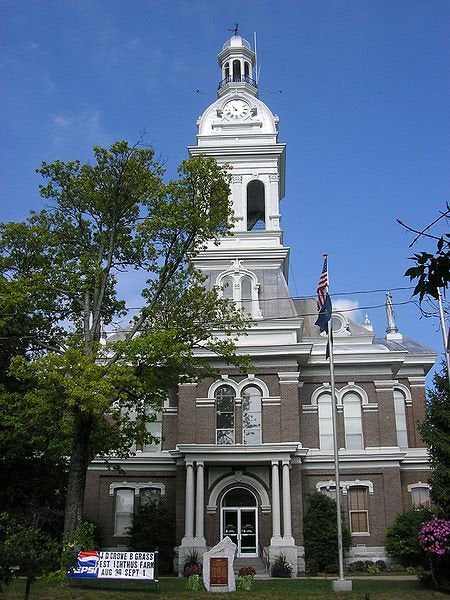State Supreme Court hears arguments in abortion case
Published 11:30 am Wednesday, November 16, 2022
|
Getting your Trinity Audio player ready...
|
The Supreme Court of Kentucky heard oral arguments Tuesday in a case that will ultimately, but not immediately, decide the constitutional framework for abortion laws in Kentucky.The immediate issue before the seven justices is whether to reinstate a Jefferson Circuit Court judge’s injunction blocking two laws that ban almost all abortions in the state. Reinstatement would allow the state’s two abortion clinics, both in Louisville, to resume performing the procedure.
The ultimate issue, which will almost certainly be decided by a court with two new justices elected last week, is whether the state constitution’s sweeping language about liberty, equality, religious freedom and self-determination creates a right to abortion.
The court has found in earlier cases that the language establishes a right to privacy, the source of constitutional protection of abortion rights in other states, and the right asserted by the clinics on behalf of their would-be patients. The lower-court injunction looked favorably on those arguments.
Clinic attorney Heather Gatnarek, an employee of the American Civil Liberties Union of Kentucky, said the central question for the Supreme Court is: “At what point in pregnancy does the state’s interest in protecting fetal life become compelling enough to outweigh an individual’s rights to make their own determinations about their bodies and their pregnancies?”
The arguments suggested that the court could reinstate the injunction in a limited way, perhaps making exceptions for abortions in cases of rape or incest. That was an option mentioned by state Solicitor General Matthew Kuhn, representing Attorney General Daniel Cameron.
In presenting his broader case, Kuhn pointed to the lack of any reference to abortion in the constitution and argued, “There is not a shred of evidence . . . that suggests our constitution implicitly protects abortion,” thus leaving the issue to the legislature.
Justice Lisa Hughes of Louisville noted that when the constitution was written in 1891, women could not vote, hold public office or, unless orphaned, own property. “Women were not considered,” she said, so “Is that not, then, something the court can consider when deciding a 2022 issue following a ballot initiative when the people voted no?”
Hughes was referring to the referendum a week earlier in which voters defeated, by 4.7 percentage points, an amendment that would have added to the constitution language saying that it was not to be construed as creating a right to abortion or funding of abortion. The court delayed arguments until after the vote, since passage of the amendment would have made the case moot.
Kuhn said, as Cameron had in a brief, that the court should not consider the referendum except as an example of how divisive the issue is, and thus should be left up to legislators, not courts.
If that was the case, asked Justice Michelle Keller, why did the legislature think “it so important to put that initiative on the ballot?”
Keller surely knew the answer to her question. The amendment was sponsored by state Rep. Joseph Fischer, whom she defeated in a widely watched race for the court’s Northern Kentucky seat.
Fischer also sponsored the “trigger law” that took effect this summer when the U.S. Supreme Court overturned its Roe v. Wade decision, which had established a constitutional right to abortion for more than 49 years. The law essentially bans abortion except in cases of threats to the woman’s life.Also at issue in the case is a 2019 law that bans abortion if a fetal heartbeat can be detected, which can occur as early as the fifth week of pregnancy. An earlier law with a 15-week ban is not part of the case.
Gatnarek cited a brief filed by doctors’ groups that said the laws create risks and “unacceptable barriers” to the care of patients.
Keller, noting that her first career was as a nurse, said “This exception for the life of the mother does not allow the mother to make any of her own decisions. The decision is left up to whatever physician is on call when the life-threatening emergency arises. And if there’s a man bleeding out in the ER, he has all the self-determination in the world, and most women do too unless they’re in a state of pregnancy. And then suddenly, there is no self-determination.”
Justice Laurance VanMeter of Lexington, a possible swing vote, asked Gatnarek whether the General Assembly, not courts, should say where the interests of fetal life outweigh individual rights: “Isn’t that ultimately the role of the legislature?”
Gatnarek replied, “It is the role of the legislature to legislate, but they must do so within the confines of what this court tells them is constitutionally permissible.”
The arguments may be viewed on the KET website.






